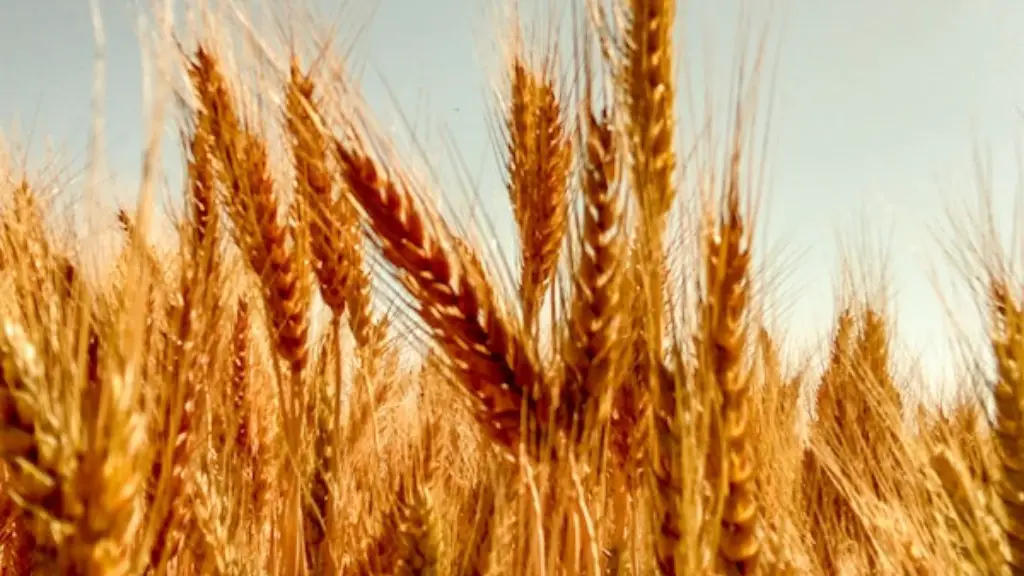Agriculture is an essential part of Alabama’s economy, with agricultural products making up over $5 billion of the state’s GDP each year. Agricultural exports account for nearly a quarter of the state’s exports, with cotton, poultry, and soybeans among the top exported items. By supporting an agricultural sector with 488,000 jobs and a 19.3 billion-dollar industry, Alabama has the ability to not only feed its citizens, but also to sustain its economy.
Alabama’s abundance of agricultural land provides it with a competitive edge in the industry, with roughly three and a half million acres of row crops and more than 15,000 farms located throughout the state. As agricultural land prices remain lower in Alabama than in many other areas across the country, farmers and agricultural companies can benefit from a more affordable price tag when investing in natural resources. Alabama’s warm climate also contributes to the success of its agricultural industry, allowing the state to produce crops that can only be grown in the Southeast.
By investing in research and development, Alabama has been able to stimulate innovation within its agricultural sector. While advances in technology and biological engineering have played an important role in the sector, research has also helped to improve production efficiency, water conservation and sustainable practices, as well as to create value-added products for agricultural companies. Through support from the University of Alabama and Alabama A&M, the state has been able to continue its success in the agricultural industry.
Alabama’s commitment to agriculture also extends to its education system, with K-12 schools teaching students the importance of agriculture and the environment. Schools within the state have programs that promote nutrition, food production, and the ecological systems associated with agriculture. Lastly, many private programs have been set up to assist family farmers in the state, by providing support and assistance with financial resources, land management, and water conservation.
Education in Agriculture
The state of Alabama has invested heavily in agricultural education, providing higher education institutions with the resources they need to develop curriculums that are instructive and impactful. This educational focus has paid off, with students graduating from Alabama’s agricultural programs well equipped for the real world. Educational institutions such as Auburn University and Troy University offer degrees in agricultural business, sciences, and engineering. And at Alabama A&M University in Huntsville, the academic recognition is national, winning the Carnegie Foundation’s Community Engagement Classification award in 2011.
These schools not only provide instruction and information but also offer extracurricular activities to further help work in the agricultural sector. Education not only extends beyond the classroom walls but also reaches a global scope as seen in the ‘One World, One Health’ program that is offered by many of these universities, connecting students with other countries to tackle global issues surrounding food production, food security, and the like.
Furthermore, the USDA’s National Institute for Food and Agriculture (NIFA) has been instrumental in assisting the state of Alabama with providing students and faculty with the necessary resources to develop innovative agricultural solutions. NIFA offers grants to Alabama schools and educational institutions to fund research projects, educational programming, and outreach initiatives that support a healthy and sustainable food system.
Along with NIFA, the state of Alabama has also seen an increase in the support of private programs which seeks to benefit Alabama farmers. These organizations and foundations provide financial aid and technical assistance to assist farmers in the state with land management and resource conservation. Organizations such as The Alabama Sustainable Agriculture Network (ASAN) and The Alabama Farmers Cooperative, Inc. (AFC) work hard to eliminate poverty in rural areas while helping establish the physical infrastructure needed to ensure food production sustainability.
Investment in Agricultural Research
The state of Alabama has also invested significantly in producing agricultural solutions that move beyond traditional farming. Through the presence of multiple large agricultural companies, research and development (R&D) within the agricultural sector has increased. This has allowed new technologies and biological engineering to be implemented in the agricultural sector, leading to advances in efficiency and sustainability. For example, Alabama’s oil seed producers have shifted away from traditional methods and have harnessed new technology to extract oil from seed crops that can ultimately be used for ethanol production.
In addition, researchers have studied the effects of conservation tillage and the use of no-till in cotton production. This research has demonstrated that these practices increase organic matter content and reduce weathering losses, while also reducing soil erosion. Furthermore, advancements in how fertilizer is applied and the types of fertilizer used can improve nutrient stabilization and reduce fertilizer losses, providing farmers with economic and environmental benefits.
Agricultural research in the state of Alabama also extends beyond simply developing better practices for farming and biology. The state has also invested heavily in social and environmental research. For example, research has been conducted on the impact of keeping working landscapes on migratory birds as well as the potential consequences of using social media to market farm products.
Its agricultural research centers also highlight the importance of Alabama’s agricultural sustainability efforts. For example, the Black Belt Research and Extension Center in Greensboro, Alabama focuses on developing sustainable practices for this largely agricultural region, performing research on the areas of soil fertility, crop production, plant breeding, pasture management, and livestock production.
The state of Alabama is committed to continual research, with collaborations between universities and other organizations helping to produce innovative agricultural solutions. Through increased investments into agricultural research, the state of Alabama stands to benefit both environmentally and economically.
Agricultural Funding and Assistance
To ensure the proper funding is provided to their farm community, the state of Alabama works with various organizations to provide both direct and indirect funding. On the state level, the Alabama Department of Agriculture and Industries works with rural communities and farmers to assist them with agricultural production and provide access to sustainable agricultural practices.
The state also provides incentives for farmers and works with multiple organizations to fund projects related to improving agriculture and the environment. Alabama’s State Water Plan for instance, was an effort supported by multiple departments and organizations in collaborations with local farmers to promote sustainable water use and management.
In addition, The Farm Service Agency of Alabama has multiple programs designed to provide direct and indirect assistance to farmers and make them more competitive. This assistance is in the form of loan programs, cost-share programs, conservation incentive programs and other programs focused on improving the livelihood of farmers.
These financial and assistance programs allow farmers in the state of Alabama to take advantage of available resources, specialist assistance, and low-interest loans to ensure their businesses are able to remain viable in an increasingly competitive market. Assistance also extends to business planning and management, with specialized services to assist farmers in meeting their goals for success.
At the federal level, the United States Department of Agriculture works with Alabama farmers to provide financial assistance in the form of grants, direct payments, and farm loan programs. This assistance is not only essential to help farmers with operating costs such as land rent, machinery, and labor, but it is also necessary to help farmers invest in their future.
Conclusion
Agriculture plays an essential role in sustaining Alabama’s economy and providing jobs for its citizens. Through investments into research and development, agricultural education, and funding and assistance, Alabama has ensured that its agricultural sector can remain viable and prosperous. This has allowed the state to maintain a successful farming industry that contributes to the overall success of the state.




